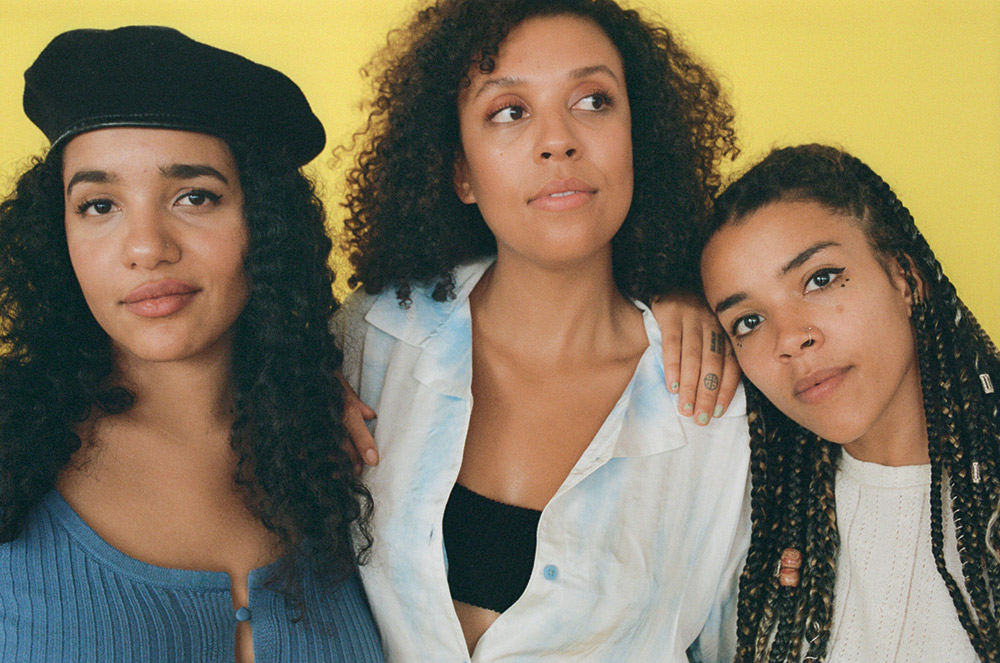In support of International Women’s Day, Pandora has teamed up with director Irene Baqué to celebrate women and the power of sisterhood. Baqué worked with three separate groups, including DJ collective Creole Cuts, four generations of mothers from one family, and Bluetits, a 15-person swimming group. Spanning three films, Pandora and Baqué document moving stories that are sure to inspire and empower others. We spoke with Baqué about what it was like filming this series, and what the notion of sisterhood means to her.
How did you get your start directing films with a focus on gender equality and women’s rights issues?
“I have a journalistic background, and my first job was making short docs for the Guardian newspaper, where I developed my style. The very first stories they asked me to do were with victims of sexual assault or victims of FGM, mainly because I was one of the only female shooters and they thought they needed a woman in the room. I realized how comfortable I was filming when there was only another woman in the room, I felt we had a connection and a sense of trust that would be hard to establish with a male filmmaker. So, from there I started to do my own research on stories led by women. I was fascinated by females who would stand up and fight for change in their own communities, most of the time without many resources or education.
Become an S Insider
The latest in fashion, beauty, design, and arts & culture.
“After a few years covering issues that affect women in countries such as Mexico, El Salvador, India, the Philippines, Ethiopia, Mozambique, and Kenya, I started to look into what’s affecting those around me. You don’t have to go too far to portray gender injustices. As a cis white woman who grew up in a very heteronormative environment, I’ve been drawn to people who have a very different reality from mine. I guess it’s a way for me to explore different identities and portray them to a wider audience, to break with the normative realities that I grew up with and had to unlearn.”
Can you give us some insight into working with and documenting these three groups of women?
“I initially thought of the topic I wanted to explore and from there, I found a few individuals or groups of women who would be a good fit for the film. After chatting with them on the phone, I ended up going with those who best portrayed the idea of sisterhood. I just knew they were getting what I wanted to portray, which was that feeling of pride about the sense of family, whether blood related or not, around them.
“In the film Sister Sounds, I was interested in exploring how someone’s identity affects creativity, and I felt that Creole Cuts—a group of mixed-race British women in their 20s learning about their Caribbean heritage through music—were perfect for it.
“For the second film For Generations, I knew I wanted to do something about motherhood. I’m not a mum myself yet, but as women around me start having babies, I’ve come to realize all the difficulties of having kids, as well as the impact on a woman’s body and life. The support that new mums need was something I really wanted to show.
“And the last film, Soul Swimmers, I wanted to highlight women over 50. Ageism against women is a massive problem and the media seems to forget about women past a certain age, when the reality is that we have so much to learn from them.”
What does sisterhood and International Women’s Day mean to you?
“Support between women. Sisterhood is not necessarily between your direct best friends—you can find sisterhood in many places. For me International Women’s Day is not a celebration of women, it’s a day to denounce gender injustices and show resilience. Hopefully, one day we won’t have to celebrate it.”
What do you hope these films and images will inspire for the viewers? How did working with these women inspire you?
“The importance of unity and acceptance in today’s world. I feel all the women that took part in the films ended up talking about the necessity of being vulnerable in order to stay strong, and the power of sisterhoods. It’s also good to be aware that the sisterhoods can change, depending on the stage of life that you feel you are in. It doesn’t necessarily mean having women your own age, but it’s good to be surrounded by women who are going through what you are going through in some way or other. I really like the idea of having a sisterhood with whom you only share a few things, and you may not be friends outside that scenario, but there is a bond in that specific time and place that unites you.”
The women touch on personal struggles, is there one story you’ve heard through your career that has always stuck with you? Or a story of your own?
“Most stories have impacted me in one way or another. Spending time with women from around the world with different backgrounds and stories has been an incredible thing to do and something that I’m sure has shaped me the way I am today. I find incredible joy in walking into these women’s lives and getting into their world for a few days—leaving at home my knowledge, my problems, my perspective on things. Just listening, connecting, and empathizing so I can make a film that feels honest.”
Watch the three films above, and view the gallery below for stills from the films.














